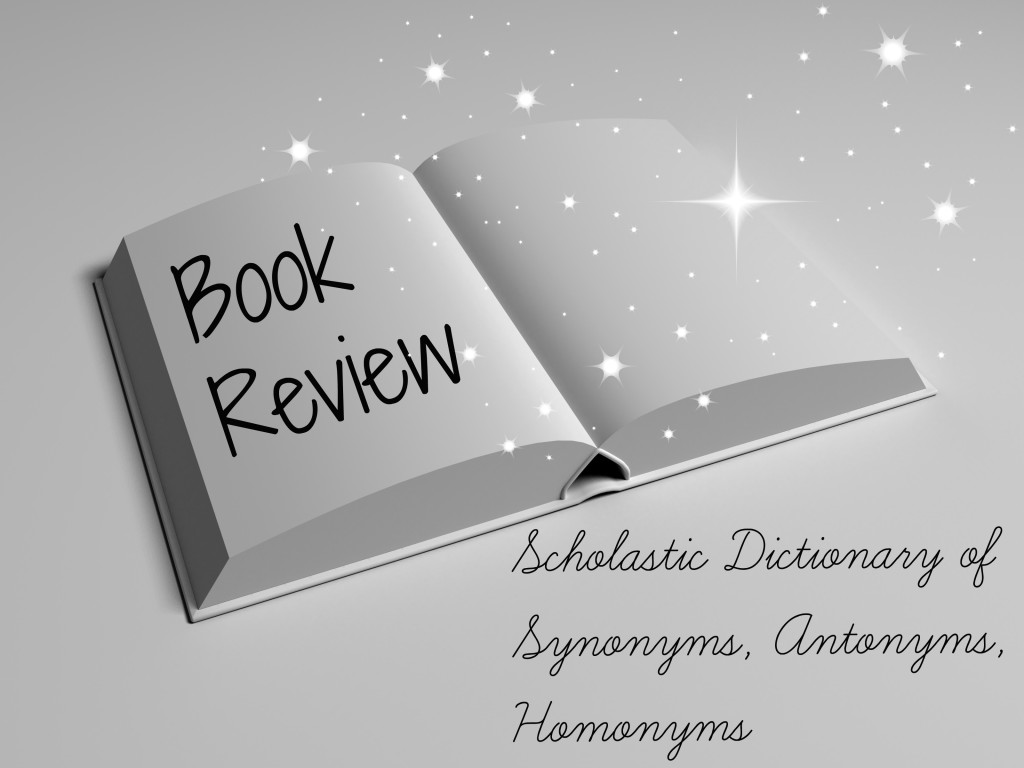Reference books and dictionaries are precious to any rhetorician, and they extend far beyond the ordinary (but delightful) Oxford English Dictionary or a thesaurus. There are countless ways that we can play around with language and have fun with it. The Scholastic Dictionary Of Synonyms, Antonyms, And Homonyms
is one way to expand your vocabulary and polish your writing skills.
Synonyms are words that have the same meaning. For example, the words bombast, bluster, and pomposity all share the same meaning. Antonyms are opposites: haughty is an antonym of gracious. Homonyms are words which share the same pronunciation but have different meanings, so that although reign means “to rule”, rain refers to water and a rein is a bridle.
This reference guide is divided into two parts. As a way to build vocabulary, Part One of The Scholastic Dictionary of Synonyms, Antonyms, Homonyms lists hundreds of words in alphabetical order with the synonyms and antonyms following each word. Part Two lists a number of commonly used homonyms to eliminate misunderstandings and confusion.
There is a short page-long explanation at the beginning of the book explaining how to use the reference, warning that “no two words are exactly alike or always interchangeable. Each synonym and antonym suggests a different shade of meaning.” This is a common mistake that we make, especially when we are learning new languages. We might tell someone that we appreciate them, but we would not say that we acknowledge, recognize, or estimate them in the same context, even though all three of those words are synonyms of appreciate. Whenever I am involved in editing work, I notice that people frequently misuse words in this way. One of the joys of writing is in choosing words to convey our exact intended meaning. Opening up a thesaurus and picking a word at random will likely only contribute to a poorly written piece.
I really like the way this book is laid out. It is quite small and therefore easily portable. The Scholastic Dictionary of Synonyms, Antonyms, Homonyms focuses on common words in the English language, offering ideas for new ways to express ourselves when we get hung up on using the same word over and over. The second section is perfect for those words that we stumble upon—I’ve noticed that principal and principle seem to always get mixed up when people are using them (and just for the record, the correct use of them is thus: as long as you stick to society’s principles, it’s unlikely you’ll be sent to the principal’s office). I will be referring to this little dictionary time and again for fresh ideas and to double-check that I have employed the correct spelling for tricky homonyms.
